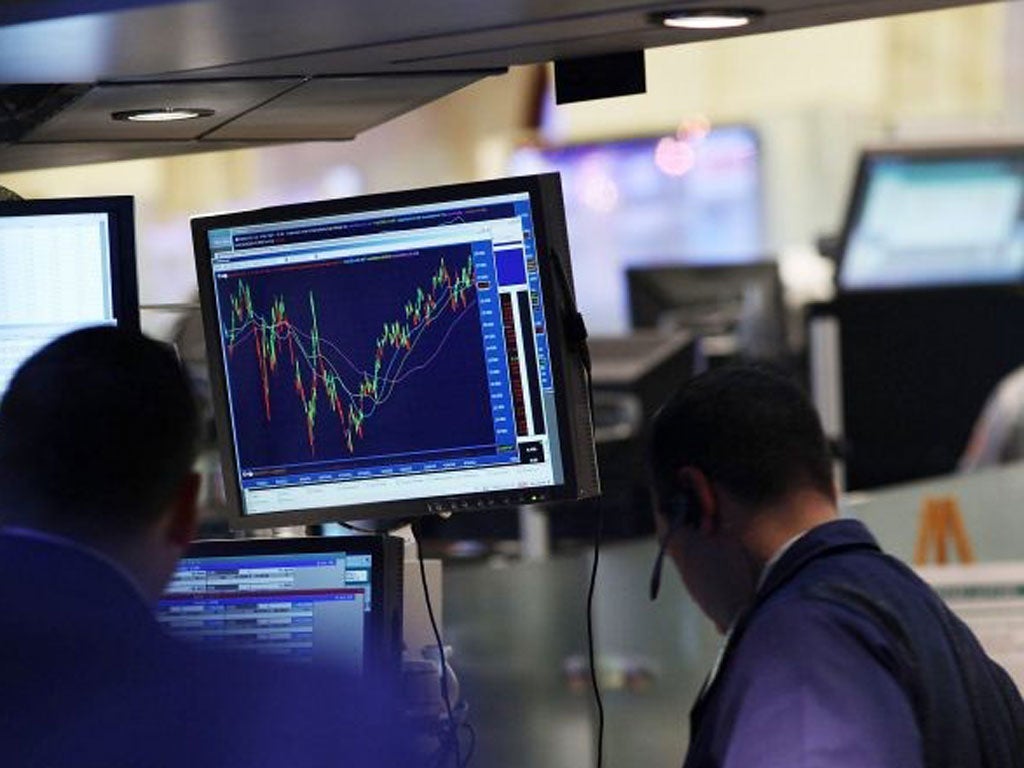Absolute shambles of absolute returns
The spectre of mis-selling stalks the investment sector yet again with negative returns on funds labelled 'guaranteed'. By Emma Dunkley

Absolute return funds promised the investor the best of all possible worlds – steady returns no matter what is going on in the wider market. But the reality is proving way short of the marketing hype.
Instead of producing returns above zero, more than half of these funds have delivered negative results in the last year. While the average fund was down 3 per cent in this time, the range of returns has been shockingly varied, with the worst fund down 22.1 per cent and the top fund up 12.7 per cent.
Although other investments aim to achieve returns over a loose time-frame, or no particular period of time at all, absolute return funds are expected to deliver a positive performance, despite market conditions, on a 12-month basis.
But Alan Miller, founder of SCM Private, says this investment objective is clearly impossible and blatantly misleading the public. "Up to £30 billion of these funds have been completely mis-sold to the general public as a direct result of the incompetent labelling," says Mr Miller.
And just because these funds aim to deliver you returns above zero, you might think they are low risk and you can't lose money, but this is often not the case.
"A lot of absolute return funds are like hedge funds – they can do very well, but they can also do fantastically badly," says Ben Seager-Scott at Bestinvest. "To make returns that are higher than cash, they have to take risk and a lot of them have got it wrong."
One of the biggest problems is the failure of communication, says Mr Seager-Scott, as many investors are not made aware that returns are just 'targeted' rather than guaranteed or promised. "There's a lot of controversy over these funds not delivering 'absolute returns' but, at the same time, if you invest in a growth fund, and it doesn't always grow, you can understand that," said Mr Seager-Scott.
Indeed, in a report last year, Fitch Ratings says there is an increased risk of these funds being mis-sold, as there is no standard definition for an absolute return fund. However, the report forecast the absolute return sector will grow substantially as investors look to protect their money, while getting returns not dependent on the movement of markets.
Unsurprisingly, the Financial Services Authority (FSA) is on the alert. "Absolute return funds may pose a risk because consumers and advisers may not understand they could suffer significant unexpected financial losses if funds fail to perform," says an FSA spokesman.
Unlike most other funds, which are labelled according to the assets and sectors in which they invest, like UK equities or US bonds, a lot of absolute return funds don't make it obvious in the name and can use widely varying strategies to each other.
Some funds, for example, do not just buy stocks, but do 'shorting', where they sell a stock in the view it might fall in value and hope to buy it again when it is cheaper, to capture a profit. Although potentially profitable, shorting can be a complex and arguably risky game.
"Don't invest in these funds if you don't understand them," says the founder of FundExpert.co.uk, Brian Dennehy. "The whole point of these funds is they focus on managing risk, but the definition focuses on returns. The 12-month target is also nonsense," he adds.
Just looking at returns over the space of a couple of years shows how some of these funds can experience extreme movements, rather than provide you with a smooth ride, stable returns and a sense of security. "How can the CF Odey fund, for example, fit the absolute return description," says Mr Dennehy. "It's a worry there's that much volatility. The same with the Octopus fund – it doesn't fit this sector as there's lots of ups and downs."
Aside from these issues, some critics believe absolute return funds are also too expensive. "The average so-called Total Expense Ratio (TER) is 2 per cent but can often be considerably more as many of these funds charge a performance fee of 15 per cent to 20 per cent of the gains," says Mr Miller. "However this has not featured much recently as there has not been much in the way of absolute returns."
In fact, the highest reported cost of these funds was an astonishing 5.9 per cent a year, with a couple of others coming in not far behind at more than 5 per cent.
But to tar all absolute return funds with the same brush would be wrong, as some have delivered decent returns via a smooth journey. Mr Denney says the Cazenove Absolute UK Dynamic and Newton Real Return funds have both "worn stabilisers" and have had less volatile rides, while at the same time having fallen less than the stock market.
"Insight's Absolute Insight fund has also had low volatility, and an amazing performance track record," says Mr Dennehy. "We've been holding it for the last three or four years and have been very happy with it."
Emma Dunkley is a reporter at Citywire.co.uk
Subscribe to Independent Premium to bookmark this article
Want to bookmark your favourite articles and stories to read or reference later? Start your Independent Premium subscription today.

Join our commenting forum
Join thought-provoking conversations, follow other Independent readers and see their replies